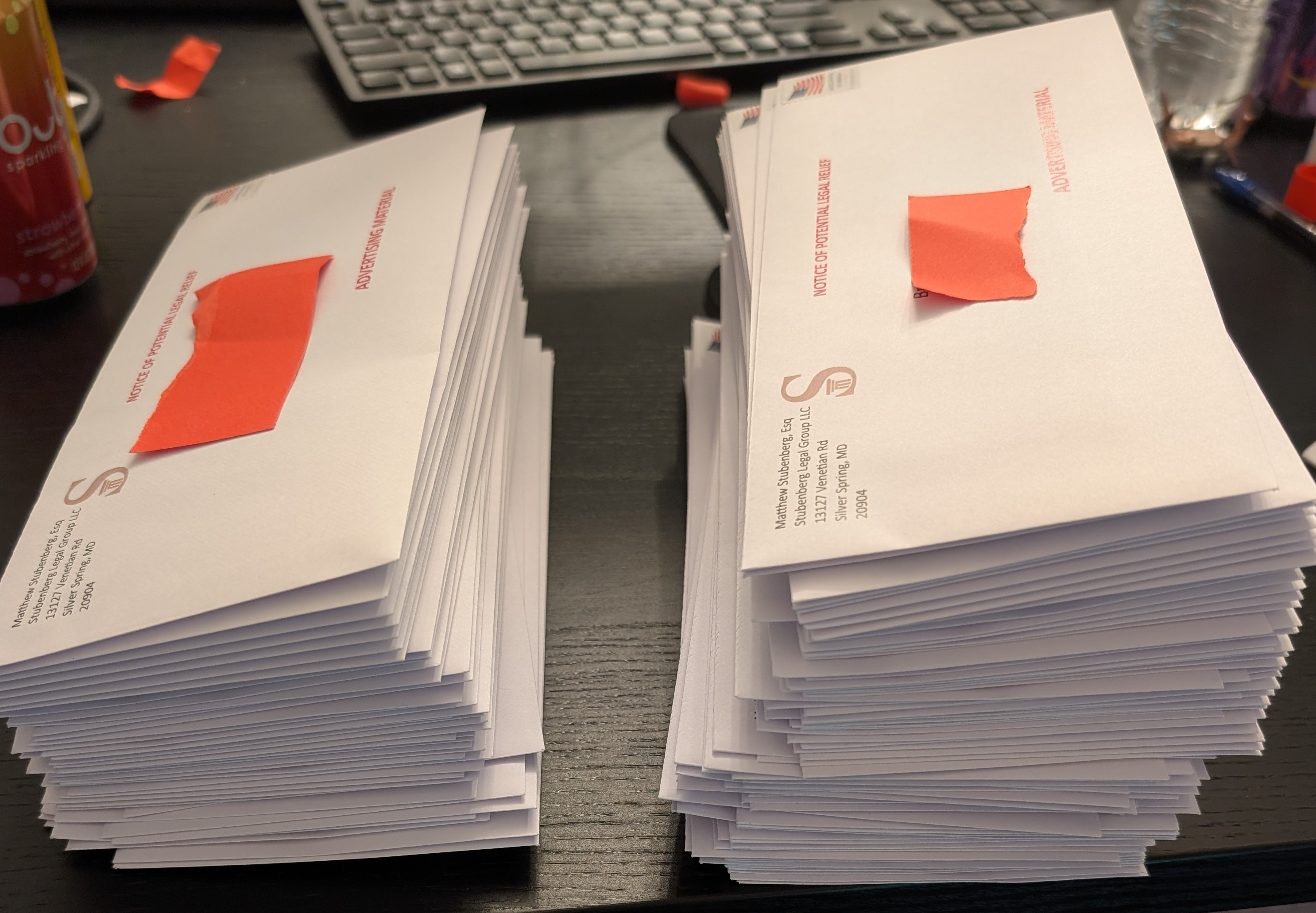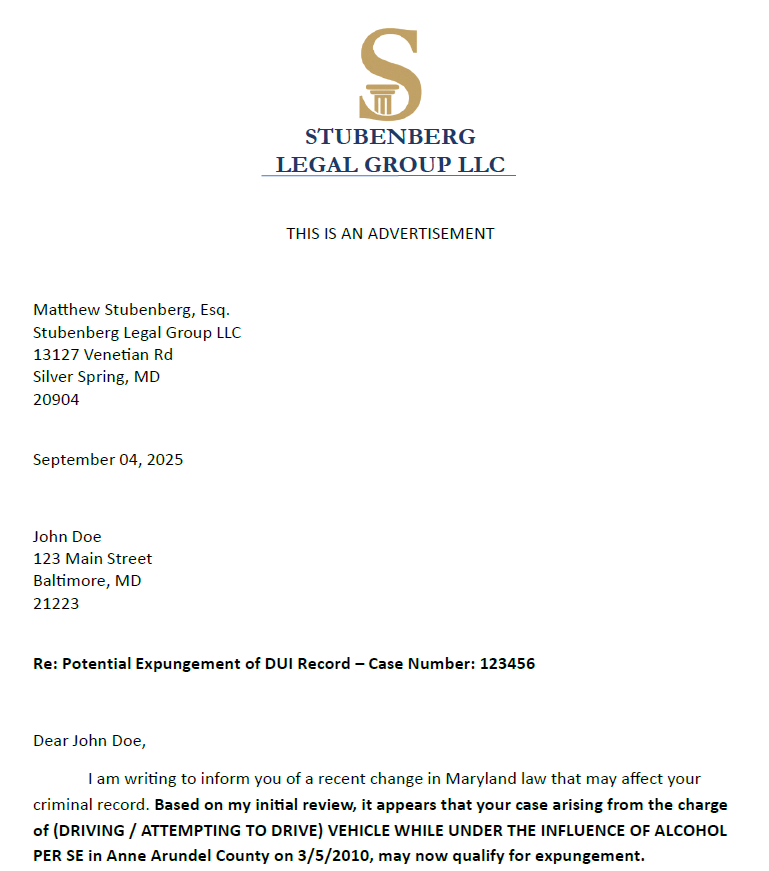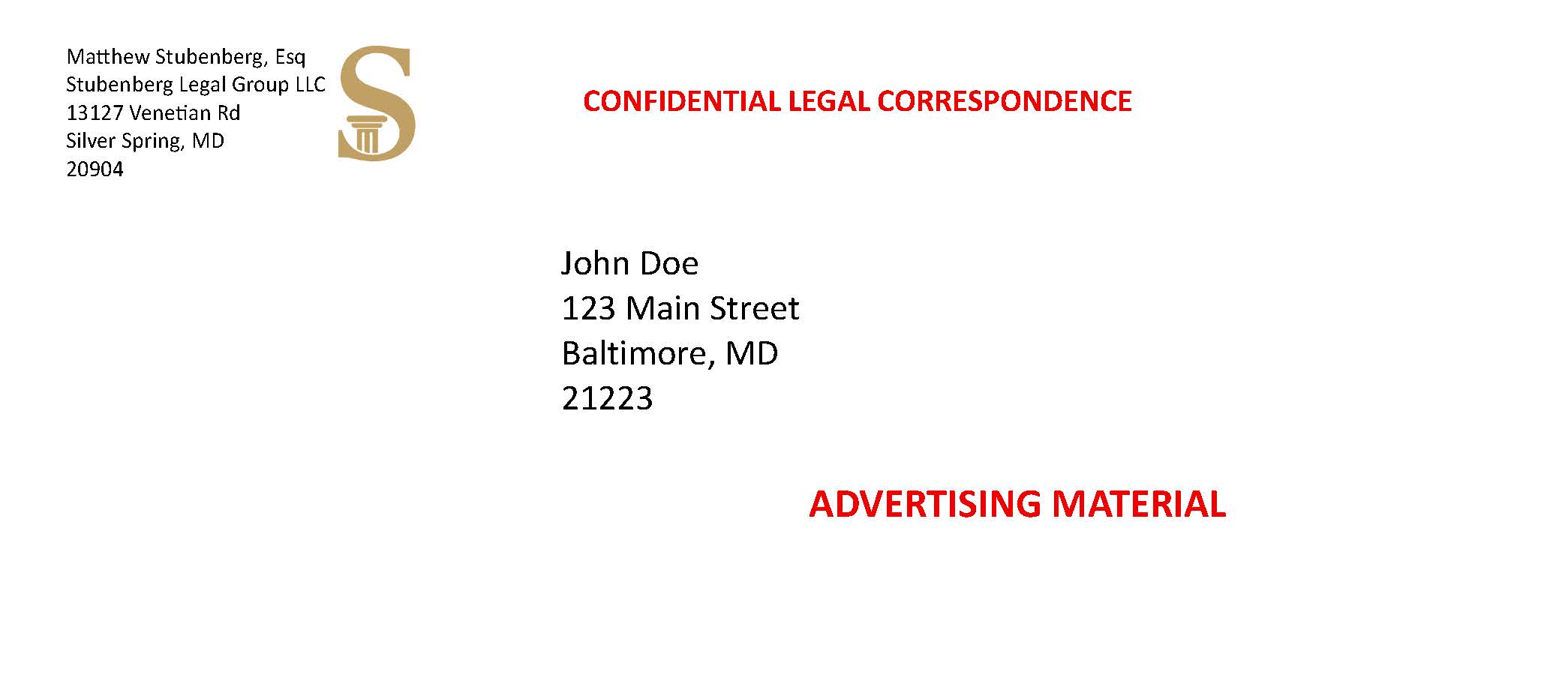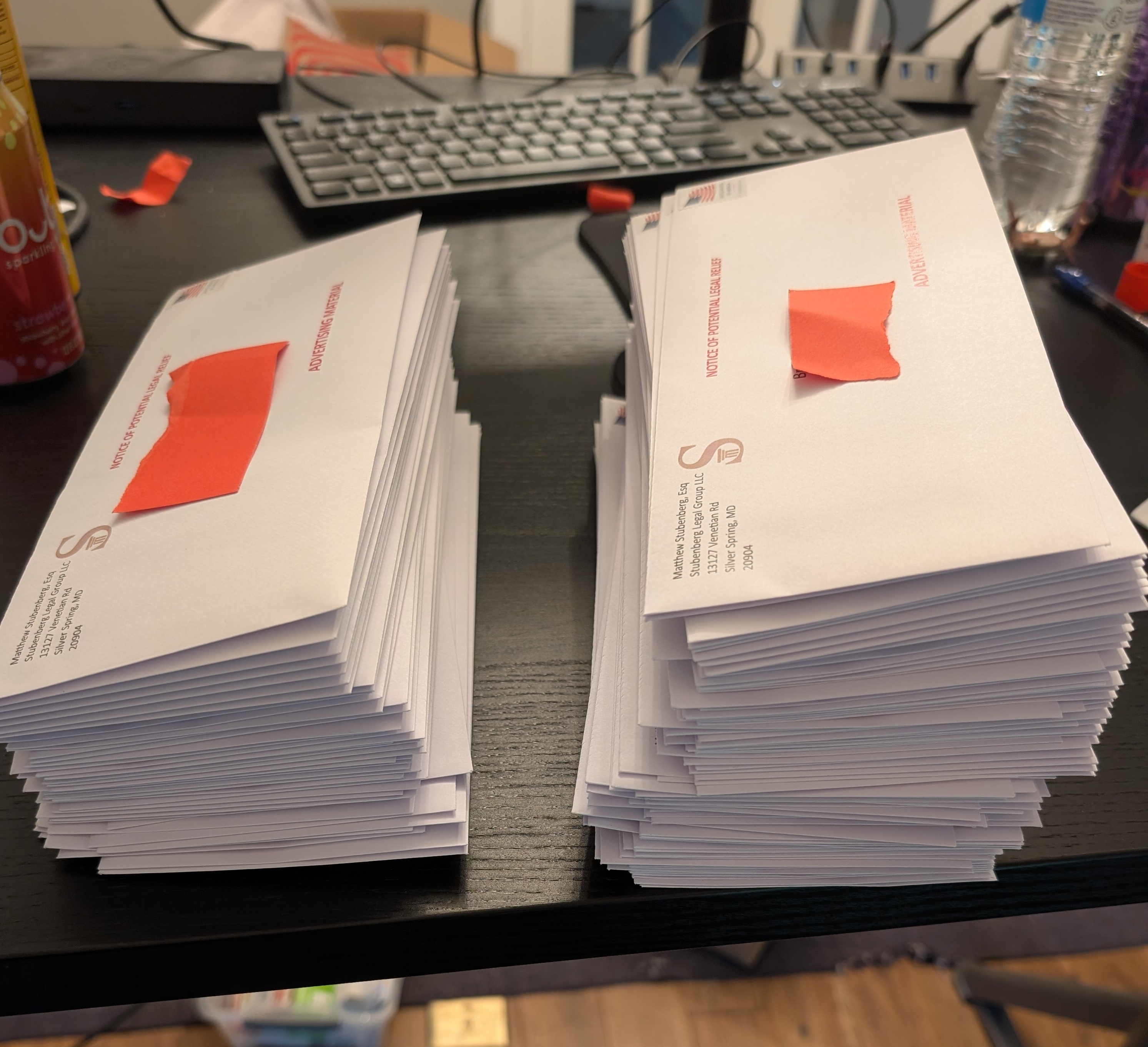Targeted Expungement Mailing

Posted: Oct. 30, 2025
I recently tried an idea that I thought was surefire, but it turned out to be a total flop. I wanted to see whether targeted mailers could reach people with criminal records that were eligible for expungement. Specifically, I focused on two groups, people who had received a probation before judgment (PBJ) for DUI and those convicted of marijuana possession. Both of which are eligible in Maryland for expungement.
Using court data I had previously collected, I identified about 125 people in each category whose case was eligible for expungement. The data included each person’s name, date of birth, and the address listed at the time of their case. Some of these cases were more than ten years old, so I knew many addresses were likely outdated.
To improve address accuracy, I used a people-lookup API that allowed me to input a name, date of birth, and prior address to retrieve what appeared to be each person’s most recent address.
In the letter itself I made sure to add specific details about their case so the reader knew it wasn't just a general bulk mailer but information about their individual case.

Because I was asking recipients to hire me as their attorney for an expungement, Maryland’s rules required me to include the phrase “Advertising Material” on the envelope.

It cannot be understated how time consuming the process of manually printing, stuffing, sealing, and stamping 250 envelopes was. However long you think it took, easily double it. I now understand why people use mailing services for this type of work.

The results were abysmal. Of nearly 250 letters, 44 were returned as undeliverable, and from the roughly 200 that appeared to reach a valid address, I received only one phone call. I had expected a much higher response rate given how personal and specific the letters were.
So what went wrong? Here are some possibilities:
- Many people probably saw “Advertising Material” on the envelope and threw it away unopened.
- Some letters likely went to the wrong address but weren’t returned, just discarded.
- DUI PBJ cases require a 15-year waiting period before they can be expunged. By that point, recipients may have stable jobs, housing, and relationships, making expungement less of a priority.
- Targeted legal mailings generally have a very low response rate, often around one percent. That’s typical in criminal defense advertising, where there’s stiff competition. I assumed expungement mailers would perform better since few attorneys send them, but perhaps people simply don’t want to open letters from lawyers at all.
- All the cases were from a Anne Arundel County in Maryland which is one of the wealthier counties. It's possible that people in this county already know an attorney who they'd rather have help them.
Whatever the reason, I was surprised by how poorly the campaign performed. I genuinely believed that this kind of hyper-targeted outreach would be effective. If you have any theories about what might have gone wrong, I’d love to hear them.
As an aside, Maryland’s ethics rules require attorneys to send a list to the Attorney Grievance Commission whenever a targeted mailing “concerns a criminal prosecution.” The rule is clearly meant to apply to current criminal defendants in active criminal cases, but it’s less clear whether it applies to expungement cases for old convictions. The Commission decided that it does, and I complied, but I still think there’s some gray area in that interpretation.